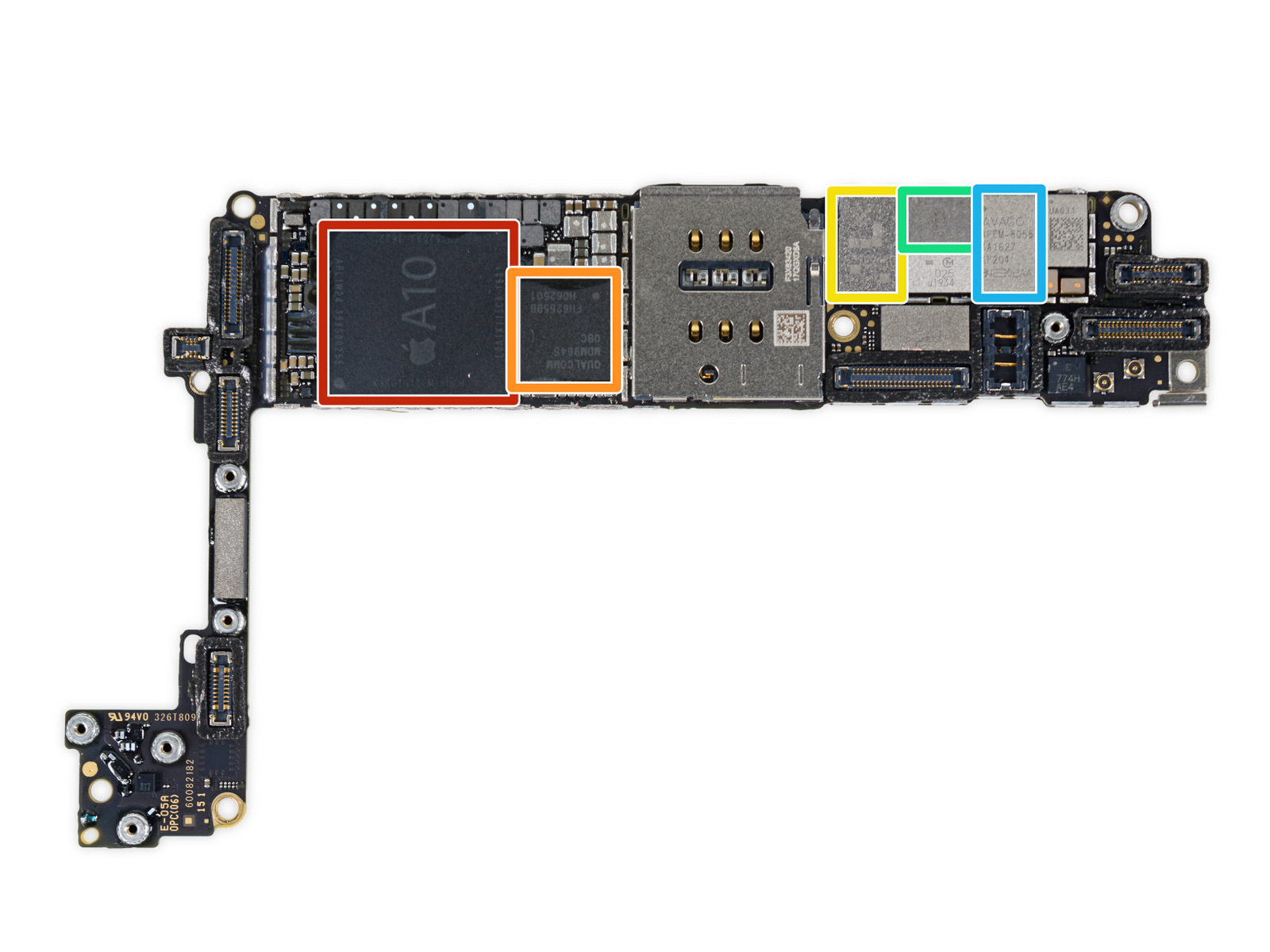EU-Kartellverfahren: Qualcomm hat seine marktbeherrschende Stellung ausgenutzt

iFixit: Qualcomm MDM9645M LTE Cat. 12 Modem, September 2016
The European Commission has fined Qualcomm €997m for abusing its market dominance in LTE baseband chipsets. Qualcomm prevented rivals from competing in the market by making significant payments to a key customer on condition it would not buy from rivals. This is illegal under EU antitrust rules.
Commissioner Margrethe Vestager, in charge of competition policy, said: „Qualcomm illegally shut out rivals from the market for LTE baseband chipsets for over five years, thereby cementing its market dominance. Qualcomm paid billions of US Dollars to a key customer, Apple, so that it would not buy from rivals. These payments were not just reductions in price – they were made on the condition that Apple would exclusively use Qualcomm’s baseband chipsets in all its iPhones and iPads.
This meant that no rival could effectively challenge Qualcomm in this market, no matter how good their products were. Qualcomm’s behaviour denied consumers and other companies more choice and innovation – and this in a sector with a huge demand and potential for innovative technologies. This is illegal under EU antitrust rules and why we have taken today’s decision.“
In einer anschließende Pressekonferenz betont EU-Kommissarin Margrethe Vestager: „…this is about Qualcomm and there’s no evidence of wrongdoing from the Cupertino, California-based company“.
Qualcomms „Rabattsystem“ ist ohnehin fragwürdig, weshalb die US-Handelskommission FTC – aber auch Apple selbst – im letzten Jahr mit zwei separaten Klagen vormarschiert sind.
Apples Produktionspartner in China bezahlten also Lizenzgebühren an Qualcomm, welche sie 1:1 auf die an Apple gestellten Rechnungen aufschlugen; darauf aber gab Qualcomm Apple einen sogenannten Rabatt im Gegenzug zu diversen Verpflichtungen, die Apple einging.
Apple vs. Qualcomm: „Ich kam beim Lesen der Klageschrift kaum aus dem Kopfschütteln heraus“
Diese „Verpflichtungen“ beinhalten beispielsweise ein generelles Verbot um kartellrechtlich gegen Qualcomm vorzugehen. Mit Qualcomms „no license-no chips”-Regel (PDF-Link) wird die Möglichkeit unterbunden, die Höhe von Lizenzzahlungen in Frage zu stellen. Lizenzgebühren berechnet Qualcomm nicht für die tatsächlich verbauten Chips, sondern anteilig am durchschnittlichen Verkaufspreis des gesamten Smartphones.
Steigt beispielsweise der durchschnittliche Preis für ein iPhone, so wie im letzten Quartal, weil das Plus-Modell mit seinen zwei Kameras beliebter war, verlangt Qualcomm dafür mehr Geld (obwohl der Baseband-Prozessor-Hersteller nichts mit der iPhone-Kamera zu tun hat).
Am schwerwiegendsten für die heutige EU-Entscheidung wiegen jedoch die generellen Verstöße gegen das Wettbewerbsrecht, die alle Hersteller von Smartphones betrifft.
This meant that Qualcomm’s rivals were denied the possibility to compete effectively for Apple’s significant business, no matter how good their products were. They were also denied business opportunities with other customers that could have followed from securing Apple as a customer.
In fact, internal documents show that Apple gave serious consideration to switching part of its baseband chipset requirements to Intel. Qualcomm’s exclusivity condition was a material factor why Apple decided against doing so, until the agreement came to an end. Then, in September 2016, when the agreement was about to expire and the cost of switching under its terms was limited, Apple started to source part of its baseband chipset requirements from Intel. But until then, Qualcomm’s practices denied consumers and other companies the benefits of effective competition, namely more choice and innovation.
Antitrust: Commission fines Qualcomm €997 million for abuse of dominant market position